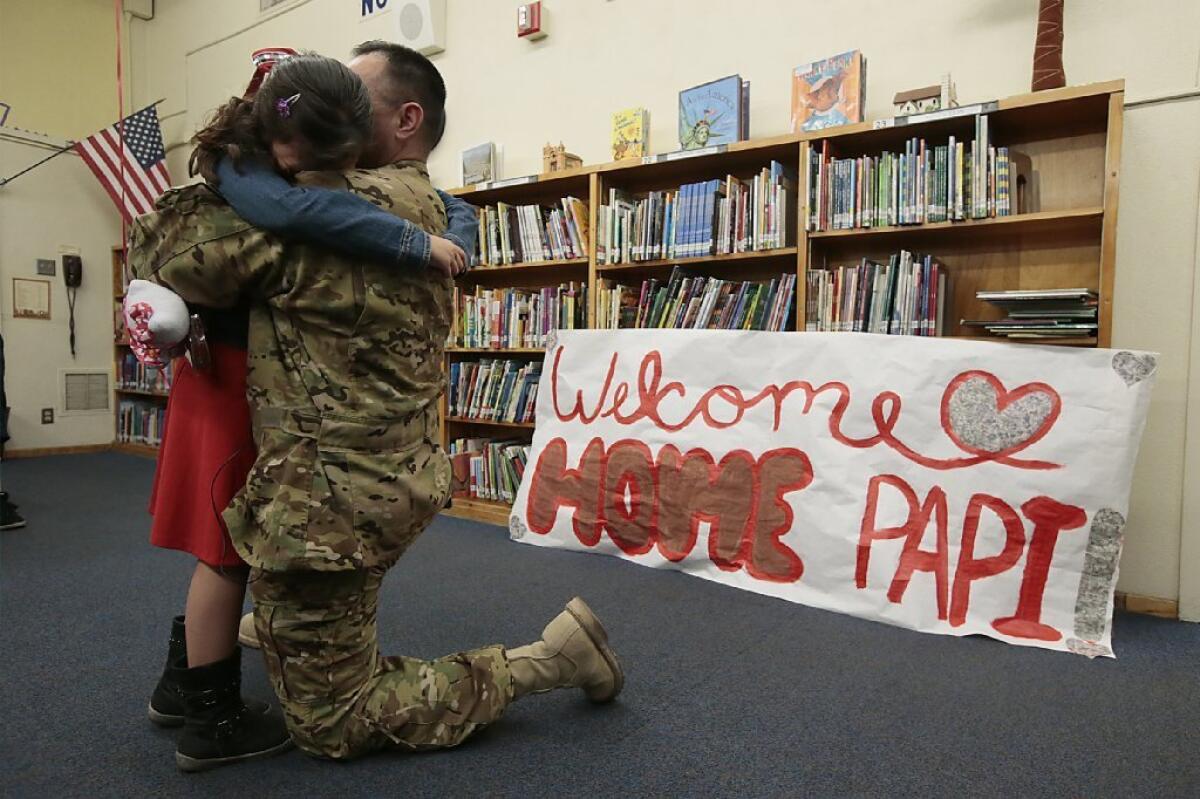Military children more likely to have a history of suicide attempts

- Share via
California high school students who have a parent in the military are far more likely than those from civilian families to have recently attempted suicide, according to a new study.
The findings are based on a survey of ninth and 11th graders at 261 schools across the state. The data were collected in 2012 and 2013.
Of 2,409 students with a parent in the military, 11.7% answered yes when asked if they had attempted suicide in the previous year. For the 21,274 students with civilian parents, that figure was 7.3%.
About a third of the suicide attempts in both groups required medical treatment, the survey said.
The study, published Thursday in the journal European Child and Adolescent Psychiatry, did not consider completed suicides.
In trying to explain the results, the researchers said the stresses of more than a decade of war — parents away on long deployments or back home dealing with physical and mental health problems — had trickled down to children in military families.
“They’re bearing the burden of our war on terrorism,” said Tamika Gilreath, the USC sociologist who led the research.
The analysis, however, did not include data on deployment histories, war wounds or other details of parents’ military service.
Historically, military children have been shown to be more psychologically resilient than civilians.
The same held true for service members, too. But between 2004 and 2009, the military suicide rate nearly doubled, catching up to — and in the Army, surpassing — the civilian rate. It has remained elevated, with young rank-and-file soldiers facing the greatest risk.
While it is tempting to blame the rise entirely on the wars, the reality is more complicated. More than half of military suicides involved service members who never deployed.
Researchers say the wars have made life more stressful even for those who never left U.S. soil. They have also found elevated rates of preexisting mental health problems among enlistees.
Far less is known about the mental health of military families. The government does not track or analyze data on suicides among children of service members.
The new study relied on data from a statewide survey conducted for the state Department of Education. More than 1,000 high schools participated in the survey, though only a quarter of them opted to include questions on suicide attempts.
All the schools asked their students — more than 27,000 with a parent in the military and more than 280,000 without — if they had contemplated suicide in the previous year.
Among military children, 23.5% said yes, compared to 18.1% for everybody else.
Follow me on Twitter @alanzarembo and “like” Los Angeles Times Science & Health on Facebook.







